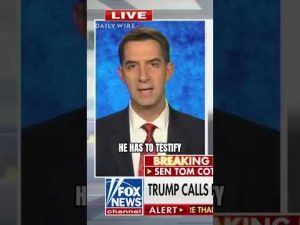The political landscape in America often feels like a high-stakes game of chess, with moves made for both strategic advantage and, sometimes, personal advantage. Recently, a particularly controversial move came from President Joe Biden, who issued a blanket pardon for his son, Hunter Biden, concerning a decade’s worth of alleged criminal behavior. This pardon has sparked a flurry of debate and frustration among conservatives and many Americans who see it as a blatant disregard for accountability.
The timing of President Biden’s decision is particularly curious. After granting the pardon, he hopped on a plane to Angola, seemingly avoiding questions on this contentious topic. One has to wonder if he believes this will all blow over while he enjoys “presidential tourism” in far-off lands. By neglecting to address the media and the American public about this significant decision, Biden sends a message of detachment, leading many to speculate whether he is truly committed to his role or simply looking to exit stage left when the spotlight shines too brightly.
This situation raises important questions about the integrity and responsibilities of the presidential office. By granting his son a pardon, Biden is effectively placing family loyalty above the rule of law. This decision subverts the very principles that bind our society, leaving many wondering if our leaders are indeed accountable for their actions or if connections can shield them from the repercussions of their misdeeds. This isn’t merely a case of a father trying to rescue his son from a tough spot; it’s a matter of public trust and ethical governance.
One cannot ignore the political implications of such an action. Pardon power has always been a double-edged sword. While it serves as a tool for mercy, it can also lead to accusations of favoritism and corruption, particularly when the pardoned party is a close relative. In this case, Biden’s move might be viewed as a middle finger to both his party and the nation, signaling that he is not too concerned about the consequences or the message it sends. This kind of behavior can erode public confidence in political leaders and institutions, sowing further discord in an already polarized environment.
In conclusion, the fallout from President Biden’s decision to pardon his son serves as a stark reminder of the importance of accountability in our government. As pun-filled as it sounds, “family first” should never trump “justice first.” The American people expect their leaders to act with integrity, and avoiding questions about questionable decisions does little to inspire confidence. Whether this episode turns into just another chapter in a long-running political saga or a moment that leads to serious repercussions remains to be seen. But one thing is clear: the American public deserves leaders who prioritize the law and ethical governance over personal allegiances.



